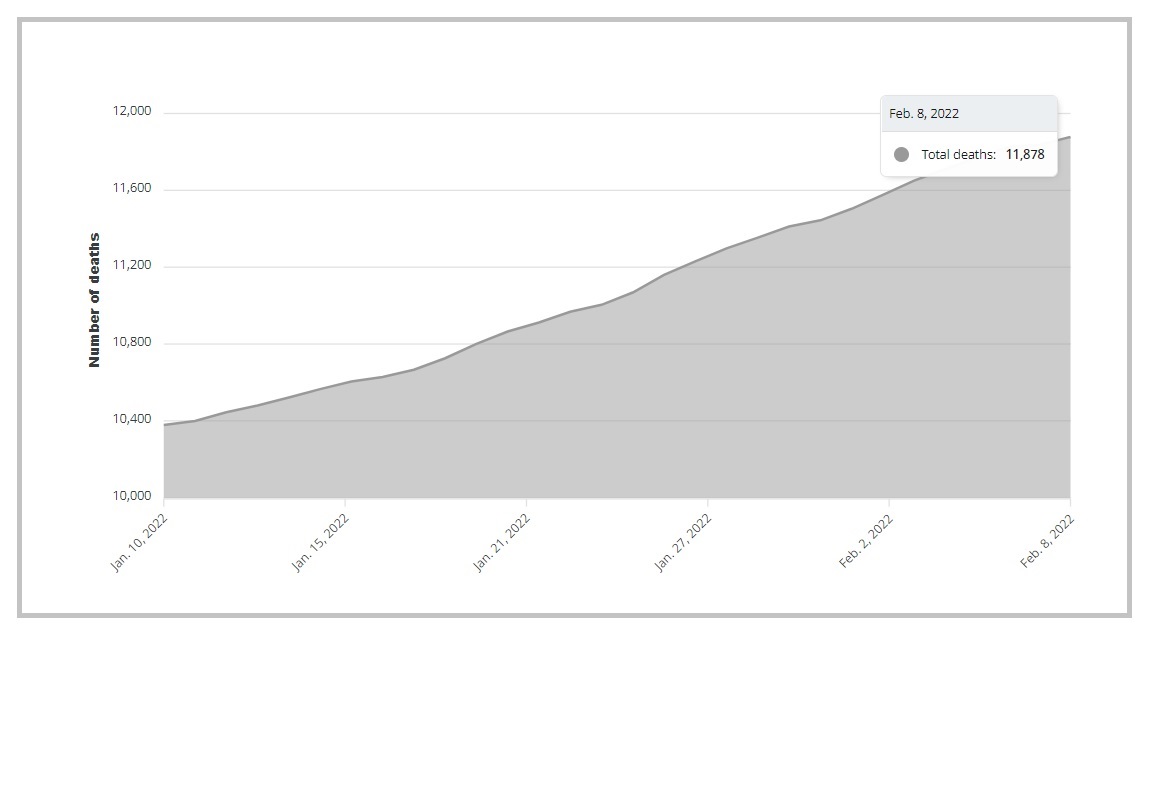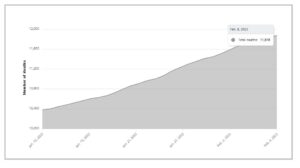Covid-19, another 42 victims in Ontario and 52 in Quebec. Stop restrictions in Saskatchewan
TORONTO – Today, the number of Covid-19 patients in the intensive care units in Ontario has fallen again: now they are 474 (compared to 486 on Monday), the lowest number since last January 10, when 438 people were admitted to the ICU.
Of these patients, 82% are actually being treated for Covid-19 while 18% are positive after hospitalization resulting from other pathologies. 174 are fully vaccinated, 158 are fully vaccinated and 10 have not been vaccinated, while no information on vaccination has been provided for the remaining 132 patients. Total hospitalizations related to the virus, in Ontario, reached 2,254, with an increase of 99: a “jump” that should be due to the fact that over the weekend, hospitals do not communicate patient data whose number, therefore, has only been updated today. Of all hospitalized, 56% were hospitalized due to Covid-19 while the remaining 44% tested positive after entering the hospital. 1,264 of these patients are fully vaccinated, 484 are not vaccinated and 100 have been vaccinated. No information on vaccination was provided for the remaining 406 patients.
Unfortunately, the number of victims rises again: today 42 were registered, bringing the death toll in the province, since the beginning of the pandemic, to 11,878. The January curve is continuously rising, as you can see on the graphic – click on it to enlarge – from the Ontario government portal (https://covid-19.ontario.ca/data): the massacre never seems to stop.
In the last 24 hours, another 2,092 cases of Covid-19 have also been reported – an underestimate, due to limited access to tests -: the laboratories have developed 15,788 tests with a positive rate of 14.2%. Most of the new cases were detected in Toronto (328 Peel Region (198) and Ottawa (152). Other areas with a number of elevator-related cases include York Region (130), Niagara Region (116) ), Kingston (109) and Windsor-Essex (101). Active and known cases in Ontario are now 32,078.
In regards to vaccinations, 92.1% of Ontarians over the age of 12 received at least one dose of the vaccine and 89.5% had two
Even in Quebec, the death curve returns to rise sharply: today 56 deaths were recorded, bringing the total in the province, since the beginning of the pandemic, to 13,551.
On the other hand, hospitalizations are increasing: provincial health officials registered 151 new patients and 196 discharges with a decrease of 45 admissions in hospitals in 24 hours (the total number of hospitalized patients is now 2,380), while hospitalizations in intensive care remained stable at 178.
Today 2,504 new cases were added, but the count – as already mentioned – does not reflect the real situation because the “official” tests are reserved for “at risk” groups. More reliable is the “photograph” taken by the portal activated by the provincial government, in which citizens can enter the results of rapid tests done at home: according to the latest data available, out of 69,480 rapid test results entered, 53,689 are positive.
As for vaccinations, 89% of Quebecers over the age of 5 received one dose, 83% due and 47% three.
Meanwhile, today the premier of Quebec, François Legault, announced a further relaxation of the restrictions – starting from Saturday and then in the following days, in “stages” – including those imposed on restaurants, theaters, private meetings at home. Vaccination mask and “passport” will instead remain in force because these are measures “that currently allow us to reopen”, said Legault, who however added: “We will have to live with the virus. There may be a sixth wave at the end, but we will have to live with Covid”.
Sharper easing of restrictions in Saskatchewan where hospitalizations seem to have stabilized: Prime Minister Scott Moe today announced that the vaccination test will be eliminated from midnight on February 14 (but it will still be required to travel or to move to other jurisdictions), while the obligation of masks will remain in force until the end of February when the mandatory self-isolation rules will also fall. Virtually all restrictions will drop.
“The Omicron variant is more transmissible but has a shorter incubation period with many cases that remain asymptomatic and with the third dose of vaccine we have better protection against serious illness and hospitalization”, reads a statement from the Province that invites “strongly” Saskatchewan residents to get vaccinated if they haven’t already.




